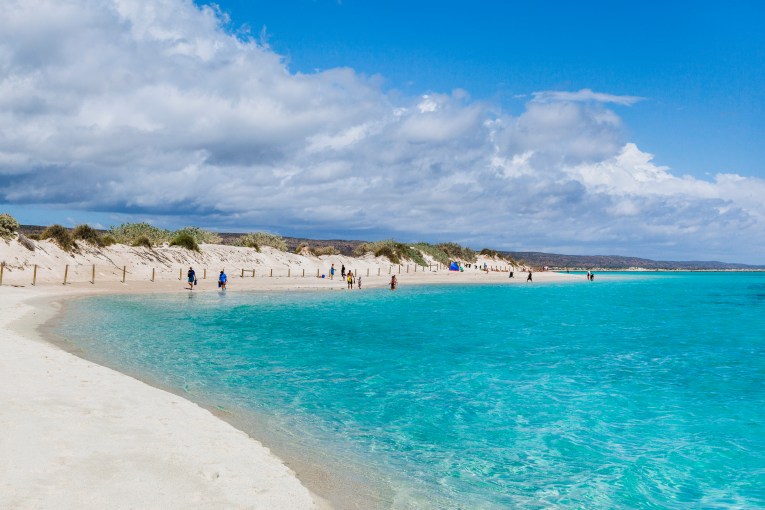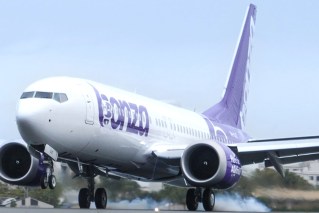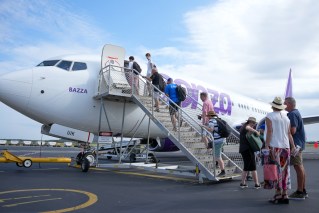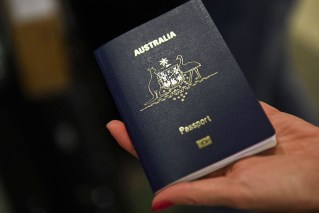Jetting off sustainably? Here’s how it could happen


Photo: TND
A trans-Atlantic flight powered by sustainable jet fuel is a huge step forward for decarbonising the airline industry, but aviation and fuel experts believe the cost of producing the fuel will need to be greatly reduced before it is commercially viable in Australia.
A Virgin Atlantic flight became the first commercial long-haul flight to use 100 per cent sustainable aviation fuel when it flew from London to New York with Sir Richard Branson aboard last week.
Dr Tony Webber, chief executive of Airline Intelligence and Research, said carbon emissions from jet fuel is a significant issue in Australia, particularly for long-haul flights.
“Qantas has been trialling sustainable aviation fuel for around a year now on some of its Heathrow flights,” he said.
“They’ve been thinking about it for some time. It will be an important part of Australia’s long-haul and even medium-haul travel.”
SAF is created by using materials like sugar cane, sawmill residues, solid waste and potentially hydrogen and CO2 in the future to create jet fuel for aviation.
In a blog post, Branson said the flight proved sustainable jet fuel “can be used as a drop-in replacement for jet fuel.”
“It is the only viable solution for decarbonising long-haul flights,” he said.
“Now we’ve shown that it can work, it will take industry and governments to make it an everyday reality.”

Branson said Virgin Atlantic defied sceptics with the successful flight. Photo: Virgin Atlantic
Commercial value
Australia imports about 90 per cent of its fuel sources, creating risk to the supply chain and unknown environmental impacts, but there is a movement towards producing sustainable alternatives.
Webber said without government support for sustainable jet fuel, consumers will bear the cost.
“Airfares on longer to medium-haul flights will have to increase significantly to meet those higher costs,” he said.
“The key will be the government getting in there and supporting additional supply of this fuel so it keeps the price down.”
CSIRO research found that Australia has enough resources to produce five billion litres of sustainable fuel by 2025 and potentially supply 60 per cent of domestic demand.
Warren Flentje, CSIRO’s net-zero emissions lead, said Australia could produce such levels with feedstock.
“There’s enough feedstock for a significant industry, but our refining capacity is lagging,” he said.
“We need to be able to identify the right technologies and processes to convert that feedstock to fuel, and we need to incentivise investment into new refining capacity.”
He said sustainable aviation fuel is currently more expensive than fossil fuels, but different approaches have been adopted worldwide.
“They range from mandates for blending new fuels through to subsidies or grants that you see, for example, in the Inflation Reduction Act in America,” he said.
“Once we’re on that transition pathway, sustainable fuels should get cheaper and they should bring long-term, sustainable benefit back to Australia.”
Australia already has facilities creating biofuels, but more investment and development will be required if sustainable jet fuel is to help cut carbon emissions in the aviation industry.
A sustainable future?
Environmental advocacy organisations like Greenpeace have taken aim at sustainable jet fuel in the past because of the use of palm oils and other unsustainable feedstock to create it, but protecting the supply chain could be another reason for domestic investment.
Flentje said it is important to be aware of the trade-off and wider benefits of any technological choice.
“We need the right technology for the right feedstocks,” he said.
“We need to be able to make the right choices about the best use of our limited bio-resources to meet all of our critical challenges and deliver the greatest long-term value for Australia.”
With the airline industry contributing 2.5 per cent of the world’s carbon emissions, the future of sustainable jet fuel remains a key component in reaching the industry’s meagre emissions targets.








